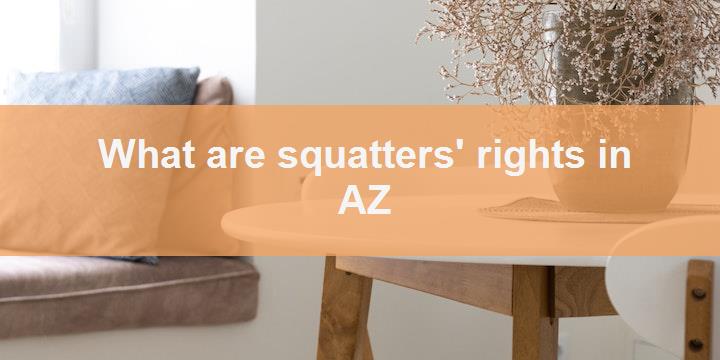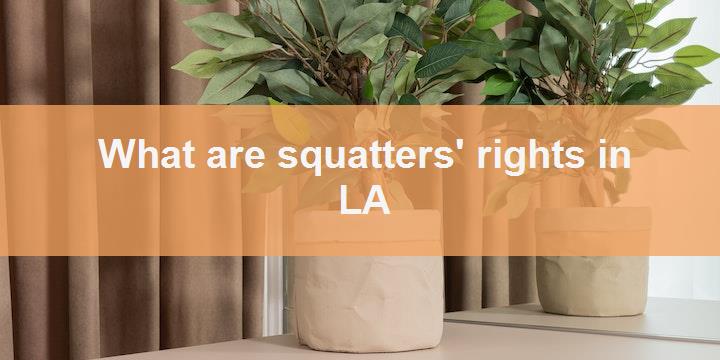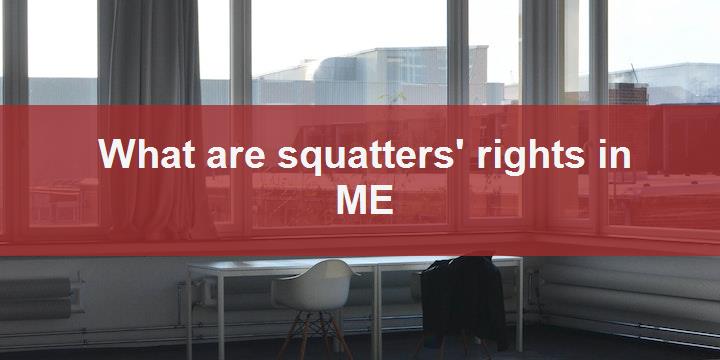What are squatters’ rights in Arizona?
First of all, it is important to understand what squatters’ rights are. Essentially, squatters are individuals who occupy a property without the owner’s permission. In Arizona, there are certain protections in place for squatters. However, it’s important to note that these protections are not absolute. For example, a squatter must have occupied the property for a certain length of time in order to make a legal claim to the property.
Additionally, if the property owner can demonstrate that they have taken steps to evict the squatter, the courts may not side with the squatter. It is important for both property owners and squatters to understand the nuances of Arizona’s squatters’ rights in order to protect their interests.
What is the squatting/squatter?
Firstly, squatting is the act of occupying an abandoned building or land without permission. Squatters, on the other hand, are individuals or groups who reside in these unoccupied properties. Moreover, squatters may also take ownership of a property through adverse possession, where they legally claim ownership after inhabiting the property for a certain period of time.
For instance, a group of homeless people might squatter in an empty government building in order to have someplace to sleep. Squatting is often considered illegal, and squatters may be forcibly removed by law enforcement if caught. However, some societies view squatting as a way to promote more affordable housing for those in need.
What is Adverse posession in Arizona?
Adverse possession refers to a legal principle that can be applied in Arizona when a person occupies a property without the owner’s permission for a specified period of time.
This principle, also known as squatter’s rights, allows the occupant to claim legal ownership of a property if certain conditions are met. Firstly, the person must occupy the property continuously for a specified number of years.
Secondly, the possession must be open, notorious, and without the owner’s permission. Thirdly, the person must have the intention to possess the property as their own. Finally, the person must pay taxes on the property during the period of adverse possession. In Arizona, the period for adverse possession is ten years if the property is not registered with the county.
Is it legal to squat in Arizona?
First, it is important to understand that squatting in Arizona is considered illegal. However, there are certain circumstances where individuals may be able to legally occupy abandoned or foreclosed properties, but only if they have been vacant for a specific period of time. In addition, squatters must meet certain criteria and provide evidence that they have been maintaining and improving the property during their occupancy. Nonetheless, occupying someone else’s property without their permission or without meeting the legal requirements can result in serious legal consequences. Therefore, it is essential to consult with a lawyer before engaging in any squatting activities in Arizona.
Can police remove squatters in Arizona?
Firstly, it’s important to understand that squatters are individuals who occupy a property that does not belong to them. In Arizona, police have the authority to remove squatters from a property if they have been given permission to do so by the property owner. However, there are certain legal procedures that need to be followed for this to happen. For example, the property owner must first obtain an eviction order from the court. Additionally, the police are not allowed to use force to remove the squatters, and they must give them a reasonable amount of time to vacate the premises. Overall, while police can assist in removing squatters in Arizona, it’s a process that requires careful consideration and adherence to legal requirements.
How to evict squatter in Arizona?
If you are struggling with how to evict a squatter in Arizona, there are a few steps you can take. First and foremost, you will need to provide written notice to the squatter informing them that they must vacate the property. It may be helpful to have an attorney draft this notice. If the squatter does not leave voluntarily, you will need to file a forcible detainer lawsuit.
This process can take some time and may require a court hearing. It is important to gather evidence and document everything along the way. Additionally, you may need to involve law enforcement to physically remove the squatter if necessary. Evicting a squatter can be a complicated and stressful process, but it is important to take action to protect your property rights.
FAQ
Q: What are squatters’ rights in Arizona?
A: Squatters’ rights are a set of laws that provide legal protections for certain individuals who inhabit a property without the owner’s permission. In Arizona, these rights are limited and can only be claimed under specific circumstances.
Q: Who can claim squatters’ rights in Arizona?
A: In Arizona, squatters’ rights can only be claimed by individuals who have occupied a property for a certain period of time, usually between 1-3 years, and have made improvements to the property.
Q: What qualifies as “improvements” to the property?
A: Improvements can include anything from minor repairs and renovations to major additions or upgrades that significantly enhance the property’s value.
Q: How do I claim squatters’ rights in Arizona?
A: To claim squatters’ rights in Arizona, you must prove that you have occupied the property without the owner’s permission for the required length of time and have made improvements to the property. You will also need to file a legal claim with the court and notify the property owner.
Q: What are the limitations on squatters’ rights in Arizona?
A: Squatters’ rights in Arizona are limited and can only be claimed under specific circumstances. Additionally, if the property owner takes legal action to remove you from the property, you may be evicted and forced to forfeit any rights to the property.
Q: Can I be arrested for squatting in Arizona?
A: Occupying a property without the owner’s permission can be considered trespassing, which is a criminal offense in Arizona. However, if you are claiming squatters’ rights, you may be able to avoid criminal charges and gain legal protections for your occupation.
Q: Do squatters have to pay property taxes in Arizona?
A: Yes, squatters are responsible for paying property taxes on the occupied property, regardless of whether or not they have legal ownership or possession rights.
Q: Can I rent out a property I am squatting in?
A: No, renting out a property that you are squatting in is illegal and can result in criminal charges. Additionally, any profits earned from renting out the property can be used as evidence against you in court if the property owner takes legal action to remove you from the property.
Q: Should I pursue squatters’ rights in Arizona?
A: Pursuing squatters’ rights can be a complex and risky process, and it is important to consult with a legal professional before taking any action. Depending on the specifics of your situation, you may be better off seeking other forms of legal protection or finding alternative housing arrangements.
Sources
1. The official website of the Arizona Legislature provides information on Arizona’s laws and statutes related to squatters’ rights: https://www.azleg.gov/.
2. The Arizona Department of Housing’s Tenant/Landlord Hotline can provide information on squatters’ rights and other housing-related issues: https://housing.az.gov/general-public/tenant-landlord-hotline.
Also Reading
San Jose average rent
Alabama average utility bill
Best time to buy real estate in Connecticut




